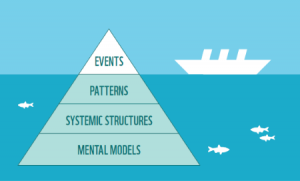By Talitha Fraser —
Jon Cornford’s recent publication Coming Back to Earth: Essays on Church, Climate Change, Cities, Agriculture and Eating offers ideas confronting, but necessary, to consume if we are to respond as disciples to the challenges of our time such as: “climate change; species extinction; resource depletion; pressure on the global food system; widening international tensions and conflicts; economic instability and fragility; persisting poverty and economic exploitation…” (p.9).
Part of what is provoking and perceptive about Cornford’s work is the requirement to look critically at Christianity and the personal practice of our faith. There is seemingly a crisis of confidence amongst Christians about whether the “Good News” really has any good news to offer – Constantine developing the Christian Empire, the Reformation that made our faith individual rather than relying on Church, the establishment of capitalism and its model of accumulation, and the age Enlightenment that created self-sufficiency from God, leaves followers wondering about religion’s relevance (p.22-27). How might this be reclaimed and animated to speak to our minds and hearts, and to our times?
There can be an implied meaning to the word “sustainability” that is about maintaining a status quo, keeping things chugging along, but Cornford extends an invitation to understand our relationship to created order and land differently. We have been given a vocation (Gen 2) ‘to work (for) it and keep it’ – here “keep” is the same usage as “the Lord bless you and keep you”. We have an ongoing creative role to play in relationship to and with the land – to observe and serve it.
Counter to modern anthropocentric thinking, Cornford asks of us: What does it mean for us to live human life within economic limits? The Bible has a lot to say about law relating to property, land, animals, Sabbath, harvest and reaping. What responsibility, and what power, do we have to respond to the needs of our world? What are the ways we might consume less and consume smart? Buy secondhand, recyclable or renewable products, repurpose what you have, buy in bulk where you can to reduce single-use packaging… these are not new ideas. What is a new idea is the motivation. Climate change isn’t going to be cured by everyone recycling – especially when China isn’t buying it off Australia anymore. Because that 619,000 tonnes of materials per annum used to be worth $523 million to our economy and now it has no value and we have no where to put it but landfill.
 See an illustration of the “four levels of thinking” below (Fig.11 WWF Living Planet Report (2016) , adapted from Maani and Cavana (2007) “showing that events or symptoms are only the tip of the iceberg in the overall dynamics of a system. Meanwhile the underlying determinants of the system’s behaviour are less apparent. The deeper we go below the surface events, the closer we get toward “root causes”. In this way we might come to understand that China not taking our recycling [event] is the good news. In fact, it’s great news because it puts the responsibility for managing our waste back on Australia and makes us think about ways to manage and address that by requiring us to look at some of our other levels of thinking.
See an illustration of the “four levels of thinking” below (Fig.11 WWF Living Planet Report (2016) , adapted from Maani and Cavana (2007) “showing that events or symptoms are only the tip of the iceberg in the overall dynamics of a system. Meanwhile the underlying determinants of the system’s behaviour are less apparent. The deeper we go below the surface events, the closer we get toward “root causes”. In this way we might come to understand that China not taking our recycling [event] is the good news. In fact, it’s great news because it puts the responsibility for managing our waste back on Australia and makes us think about ways to manage and address that by requiring us to look at some of our other levels of thinking.
There are systemic issues that aren’t going to be addressed in this political climate. The system is broken. The system will not change until people start changing. The challenge is to start acting in faith that change will come and to believe that we can participate in and take responsibility for that. No matter how long later or even whether others follow suit or not.
We pay so little for what we buy new that there is no incentive to re-use or repair it. We need a cohort of people to take the environmental crises seriously and create the demand for items made from recycled materials. The process costs of making items from recycled materials needs to come down and a larger market needs to be developed to compete with new-made. We need to be lobbying for this market to be subsidised or an appropriate ‘tax’ to be paid on new-material items.
It is clear to environmentalists and ecologists that it is not enough simply to stop what we’re doing to the environment – say, stop logging. Humankind need to actively intervene toward restoration, like native plantings in National Parks, to work together with the created order for wholeness and balance.
“Work without conceptual meaning is hard” an activist said to me recently of societal apathy, perhaps this is a gift that Christian faith has to offer a world struggling to respond to the desperate cry of our earth. “Belief for so many Christians has become an exercise in rationalising the cognitive dissonance between what they read in the Bible and what they encounter on Sunday mornings” (p.13). If instead Christians have an understanding that The Word must always become Flesh, if we read the news, local and global environmental reports, WWF and other animal and ecosystem reports, research papers by climate scientists as well as our Bible – world and Word together – what might that do for our both our comprehension and capacity to respond?
Jeremiah 6:16 says: Stand at the crossroads, and look, and ask for the ancient paths, where the good way lies; and walk in it, and find rest for your souls…
But in the very next statement this hope is dashed: “but they said: ‘We will not give heed’” (p.45) Christians need to acknowledge our call to confession, our grief… our guilt. “we have done this”. (p.43) but our faith and the resurrection tell us we cannot be nailed down by our sin. What action then is demonstrably living into the freedom our faith invites us to?
One of Cornford essays unpacks seven dimensions of an alternative economic life that would express God’s counter-cultural good news… Rejection of the idols of ‘more’ and ‘me’; care and nurture; work; responsible consumption; household economy; generosity; and economic interdependence (p.29-36) these focus on the individual lives of Christians but other sections of the book also call for the Church to act out of its moral authority to speak to these serious issues of our time.
God has appointed us to be stewards of this earth, its water and land, its trees and flowers, its animals and birds. To work it and keep it. To observe and serve it. God created it and saw that it was good – what do you say that it is? what do you believe it could be?
Copies of Coming Back to Earth are available from Wipf and Stock from $12


1 comment
[…] You can read the full blog piece here… […]